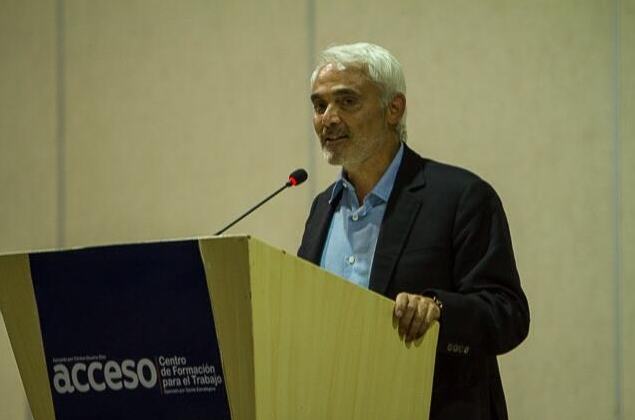“There are some simple truths in the resource game,” Frank Giustra tells me. "The first truth is that you pick a great management team and you wait."
For the uninitiated, Giustra is one of the more successful natural resources investors of the past thirty five years. Some of you may know him as the founder of Lionsgate Films. Or a global philanthropist. Or the olive oil world champion.. the list goes on.
Frank’s an iconic entrepreneur who wears many hats, but first and foremost he’s a natural resource developer, having created no less than 5 billion-dollar commodities firms.
What is his strategy for making gains in the sector that created the bulk of his wealth?
“The big wins are not just doubles and triples,” Giustra says. “For a ten-bagger to happen you have to recognize a few things before your typical institutional investor or analyst, who waits for all the proof before he or she invests. By that time, chances are it has already made its big move.”
Giustra looks for a management team with a track record of success and likes to back them early. “Then I watch and see if they deliver on their promises.”
If they do, Giustra says he then looks at what they are projecting forward and if, in his mind the potential gain is worthy, he loads up.
Right now, Giustra has Petroamerica Oil on his mind, a Colombian oil and gas firm he co-founded in 2010 that came back from the brink in 2012 to grow from 150 to over 9000 barrels of oil per day of production in just the last two years.
“Management told me they would get to 6000 barrels in a couple of years.”
Check.
“Then they said they were looking for growth opportunities and to increase the Reserve Life Index, which they just did.”
Frank is referring to the company’s successful acquisition of Suroco Energy earlier this week, which gives Petroamerica exposure to the potentially repeatable N Sand exploration fairway in Colombia’s Putomayo Basin. The takeover was hotly contested between Petroamerica and Vetra, a private equity backed firm that made a premium, all cash offer to Petroamerica’s bid, but Suroco shareholders elected to take the upside of Petroamerica stock.
“Now they forecast 30,000 barrels over the next couple years.”
The natural resources investor believes the projection is realistic based on management’s track record and is calculating what the company could be worth.
Petroamerica’s market cap today is $295 million, while peer Parex Resources is worth nearly $2 billion for 22,500 barrels per day (albeit with a longer reserve life and more diverse asset base).
“The way to get 10 baggers is not by waiting until they have achieved 30,000 barrels.”
Petroamerica is not Giustra’s first Colombian oil and gas venture. In 2008, he seeded Serafino Iacono’s Pacific Stratus Energy, with $5 million in early stage capital. Today that firm is Pacific Rubiales Energy, Colombia’s largest non-state owned oil and gas firm, worth $6.4 billion.
“I like to focus on something and make sure it's worth my while. Wheaton River was the same idea; a great management team with nothing when we started.”
Wheaton River, which Giustra and Ian Telfer took over in 2001, went on to become Goldcorp, and spin out Silver Wheaton, creating tens of billions of value for shareholders over the decade that followed.
"Waiting for the company to deliver on its promise of 30,000 barrels per day is the job of big banks analysts," Giustra says. "Mine is to make most of the money before they do."
Courage might also have something to do with it, here's Frank doing high altitude military parachuting earlier this year just outside of Memphis, TN.
Follow Frank on Twitter: @Frank_Giustra
Disclosure: Author owns shares in Petroamerica Oil. Always do your own due diligence.























Of course, no one mentions Kazakh mining deals in the same breath with Yorkton Securities. Perhaps it’ll be submitted to the “forgetting” department of Google. Let’s see how fast this comment gets deleted.
I’m a bit new to studying the natural resource sector. Would you care to elaborate on what you are referring to? I’m rather interested to hear it thanks.
http://mediamatters.org/research/2008/01/31/ny-times-failed-to-note-giustra-reportedly-invo/142392
As suggested by the old 1889 book The Great Red Dragon, when a person shoots into great wealth quickly, they’re usually fronting for someone or some group that doesn’t want the publicity, for a very good reason.
Although I find this extremely intriguing I am having a hard time reading between the lines. Is the suggestion that the previous successes have been nothing more than well orchestrated back-room deals?
In well-publicized divorces among the quick rich, the amount of the estate to be split up was much, much less than attributed prior to the divorce. Same when they pass on. The wealth was actually owed by others, who are never mentioned. As said in the movie “Devil’s Advocate,” the law is a back-stage pass to what really goes on behind the curtain.
Kind of like nobody ever mentions Area 51 in the same breath as The Moon Landing.